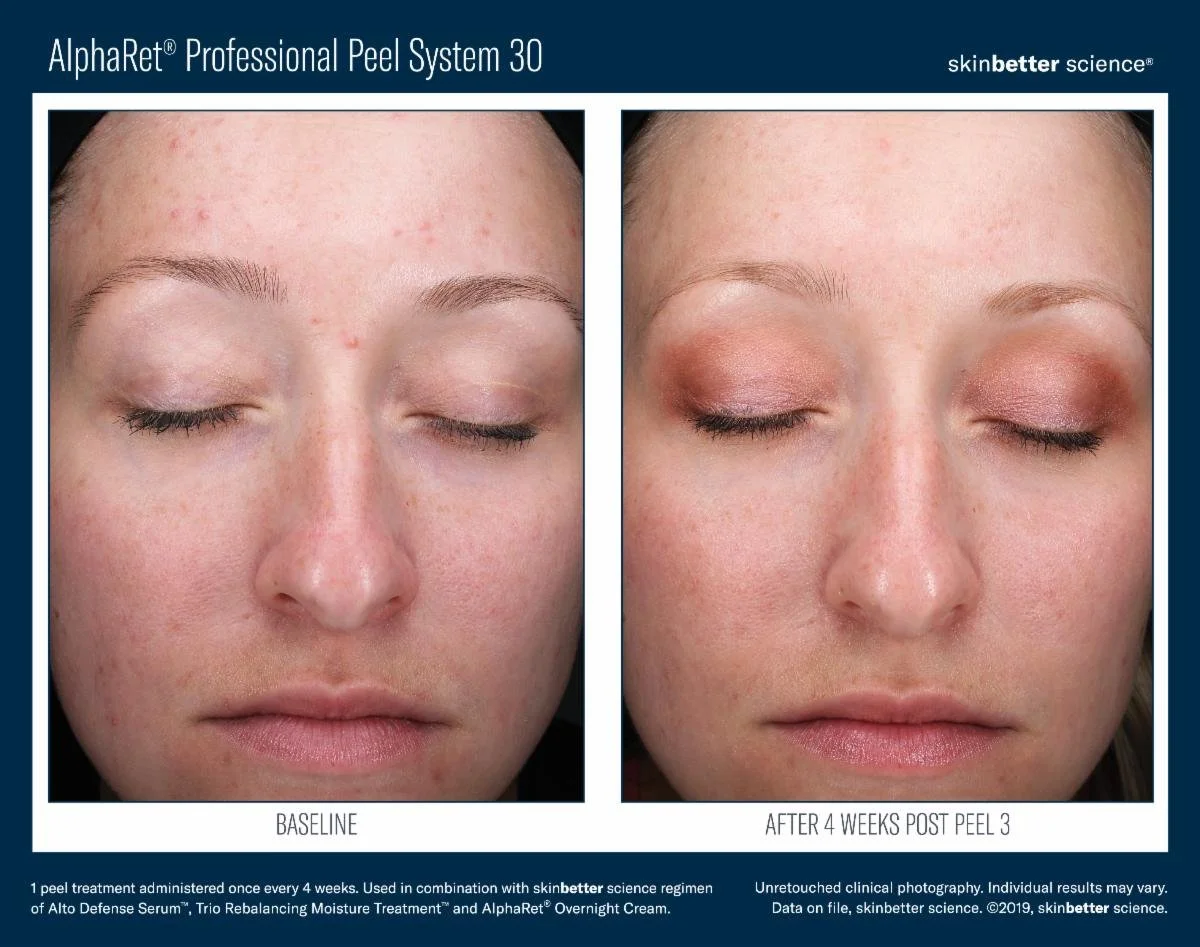What is a chemical peel?
Chemical peels are a powerful tool in skincare, offering a range of benefits from rejuvenating the skin's appearance to treating specific skin concerns. Let's dive into peels and why they are one of our favorite services.
What is a chemical peel?
A chemical peel is a cosmetic procedure in which a chemical solution is applied to the skin to exfoliate the top layer, which can result in the peeling of old, damaged skin, but not always. With today's technology, different brands have created chemical peels that do not do what they traditionally would - peel your skin. I know we have all watched progression videos on TikTok of peels, and it can have a harsh side effect. But you can still reap the benefits of a chemical peel without the harsh side effects. Despite which level of peel you and your provider choose (we will cover this later), the all have the same goal: to reveal fresher, smoother, and more youthful-looking skin underneath.
Chemical peels are a versatile treatment used to address a variety of skin concerns, including:
Wrinkles and Fine Lines: Chemical peels can improve the appearance of fine lines and wrinkles, particularly those caused by sun damage and aging.
Hyperpigmentation: They are effective in reducing the appearance of dark spots, melasma, and uneven skin tone.
Acne and Acne Scars: Chemical peels can help control acne breakouts and minimize the appearance of acne scars.
Sun Damage: They can reduce the signs of sun damage, such as sunspots and freckles.
Skin Texture: Chemical peels can smooth out rough skin texture and improve overall skin quality.
Large Pores: They can make enlarged pores appear smaller.
Uneven Skin Tone: Chemical peels can even out skin tone and give a radiant complexion.
Types of Chemical Peels:
There are three main types of chemical peels, each varying in depth and intensity.
Superficial Peels: These peels are the mildest and use a mild acid, such as alpha hydroxy acid (AHA) or beta hydroxy acid (BHA), to exfoliate the outermost layer of skin. Superficial peels require little to no downtime and are suitable for addressing minor skin concerns. We like to refer to these peels as our lunchtime peels. They require no downtime and are so easy that you can get one on your lunch break and return to work with no problem!
Medium Peels: Medium peels use stronger acids, like glycolic acid or trichloroacetic acid (TCA), to penetrate deeper into the skin. They are effective in treating moderate skin imperfections but may require some downtime for healing.
Superficial and Medium Peels (Glycolic acid is an alpha hydroxy acid (AHA) derived from sugar cane) are generally considered safe during pregnancy when applied in low concentrations as a superficial peel. However, it's still advisable to consult your healthcare provider or dermatologist before undergoing any chemical peel during pregnancy.
Deep Peels: Deep peels use strong acids, typically phenol or high-concentration TCA, to penetrate several layers of skin. These peels provide significant rejuvenation but require a longer recovery period and may not be suitable for all skin types.
We offer a variety of peels from Glo Skin, Perfect Derma Peel, and Skin Better Science at each level. When you come in for your consult, you and your provider will discuss your skin concerns and determine which level and which peel would be best for your skin.
Chemical peels are a valuable tool in skincare, offering a versatile solution to a range of skin concerns. Whether you're looking to reduce signs of aging, improve skin texture, or address specific issues like acne or pigmentation, chemical peels can be customized to meet your needs. However, it's essential to consult with a qualified dermatologist to determine the most suitable type of peel for your skin type and concerns. With the right care and professional guidance, chemical peels can help you reveal the radiant, youthful skin you desire.
Before and after Glo Skin Hydra Bright - Pro 5 Peel
Have questions? Book a consultation with one of our providers by clicking the link below, or reach out directly at 804.491.4111.






